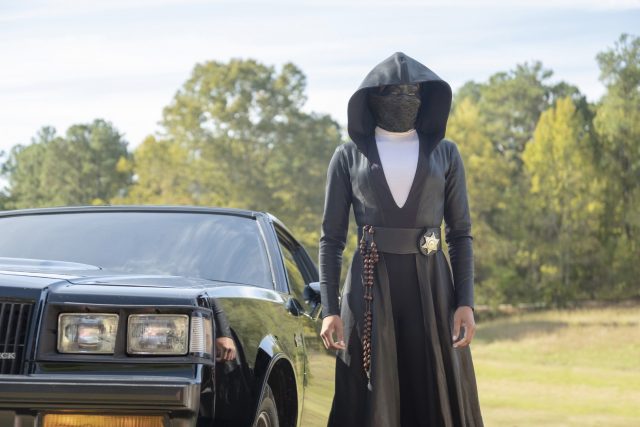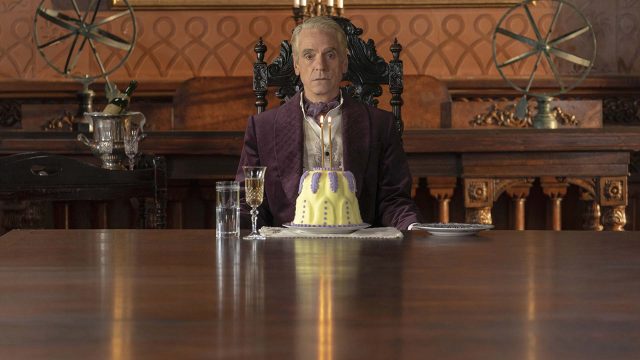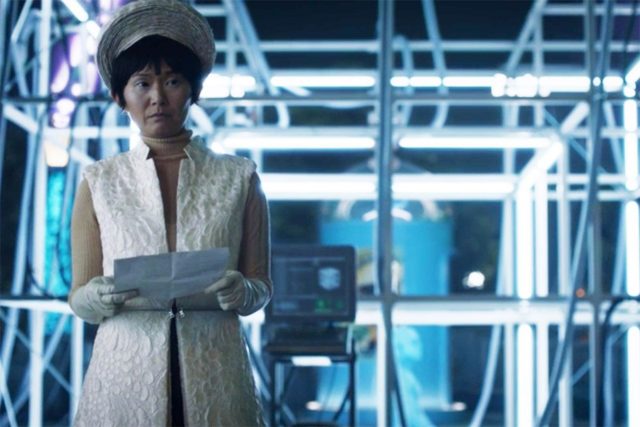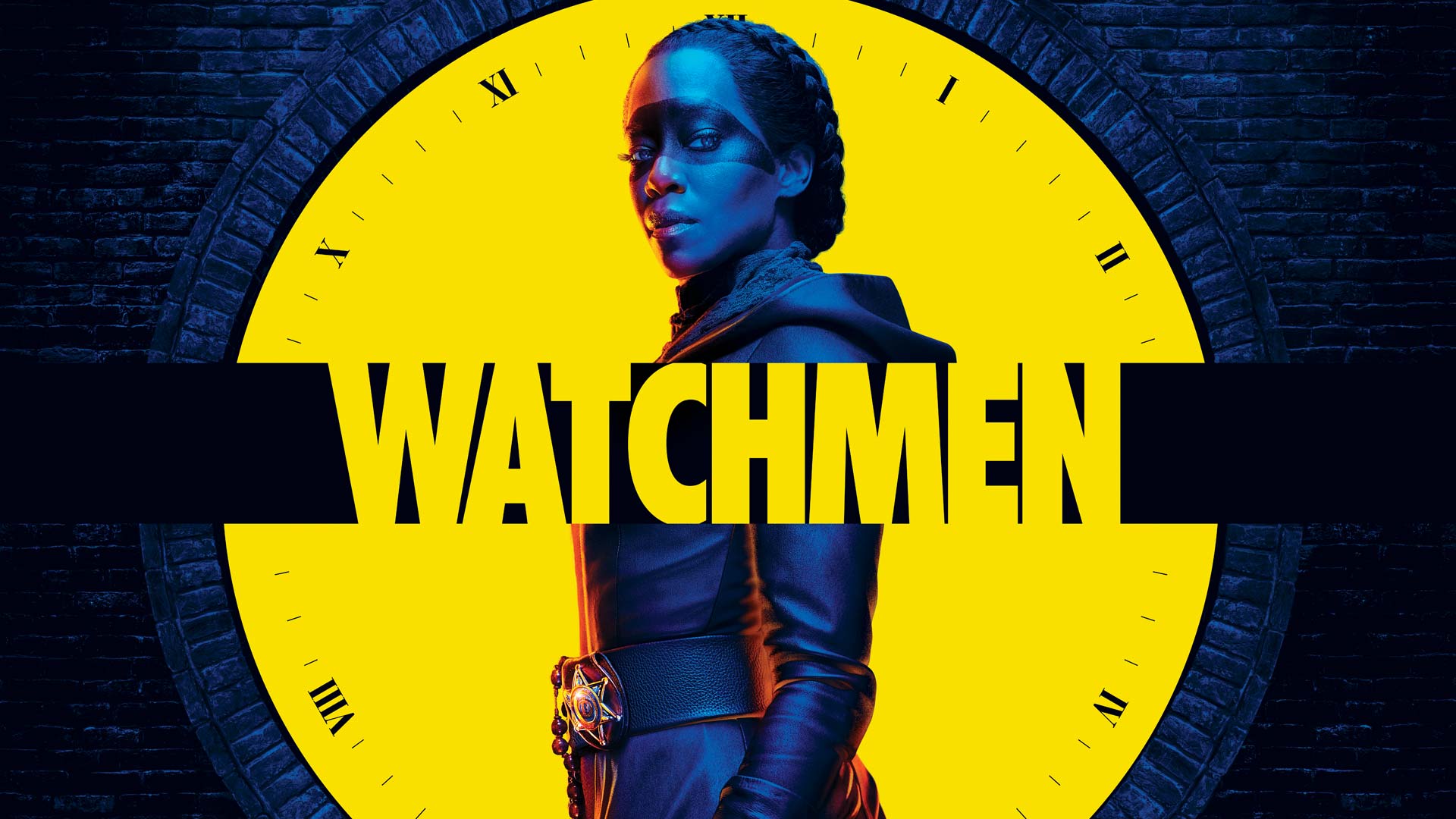NOTE: Spoilers from throughout the first season of, “Watchmen” are present in this review
It’s hard to believe that the supposedly ‘unfilmable’ Watchmen graphic novel’s 2009 movie adaptation released ten years ago at the time of writing. Since that movie’s release as well, Watchmen’s publisher and owner, DC has become less afraid to expand upon the vigilante-themed world created by Alan Moore and Dave Gibbons, with a prequel comic miniseries, Before Watchmen subsequently premiering in 2012, which was later followed by the debut of a crossover comic miniseries, Doomsday Clock in 2017, a comic book run that finally brought the Watchmen characters properly into the shared DC Comics Universe. Despite DC eventually and happily continuing the saga of Watchmen in their comic books however, no further live-action additions were made for Watchmen for a whole decade, be they movies or television shows. That finally changed after HBO green-lit a successor series to the original graphic novel, one also simply called ‘Watchmen‘.
HBO’s Watchmen series largely ignores the events of Before Watchmen and Doomsday Clock (though it does take one major event, Robert Redford’s prolonged presidency, from Doomsday Clock), and rejects the altered ending of the 2009 Watchmen movie as well, instead embracing the absurd, yet impactful alien squid ending from the original Watchmen graphic novel. The series thus picks up thirty-four years after the events of the Watchmen graphic novel, which was set in 1985, thus placing this new live-action Watchmen series in an alternate-timeline 2019, the present day. The events of the Watchmen graphic novel are treated as gospel in this series, particularly its ultimate conclusion, now known as ’11/2′, when Watchmen veteran, Adrian Veidt/Ozymandias teleported a genetically-engineered psychic alien squid into New York City, feigning an inter-dimensional attack to scare the world out of nuclear war, even at the cost of millions of New Yorkers being killed. Ozymandias’ plan still works like a charm even in 2019 as well, with nuclear war no longer being the threat behind HBO’s Watchmen series, which instead goes in a very different narrative direction than its graphic novel inspiration.

There’s a lot to unpack over this first nine-episode season for HBO’s Watchmen. This is especially true when its many moving story parts are executed in such a satisfying, tightly-realized fashion, that showrunner, Damon Lindelof has toyed with the idea of just ending the series after one season, and not ultimately making a second season! I hope these nine episodes aren’t the last we see of HBO’s Watchmen series however, since its present-era vision of a post-Watchmen world, one with its own altered politics and history, is exceptionally realized, and still feels rich enough to expand upon in future seasons, regardless of whether or not the original Watchmen characters return again. Of course, not every lead character from the Watchmen graphic novel survived its events anyway, most notably Walter Kovacs/Rorschach, who was killed by this universe’s one super-powered character, Doctor Manhattan, after Rorschach refused to keep quiet about Ozymandias being behind 11/2. Even then, another Watchmen comic lead, Dan Dreiberg/Nite Owl II is never seen in this first Watchmen season either, despite an appearance by his flying ship, Archie, the design of which is now the property of the Tulsa PD.
Yes, Tulsa, Oklahoma is the very unusual setting of HBO’s Watchmen series, one that’s certainly very far removed from the New York setting of the original graphic novel! With the events of said graphic novel occurring three-and-a-half decades in the past as well, the series is now mostly headlined by an all-new character, Angela Abar, a.k.a. Sister Night, a masked detective working for the Tulsa PD, who now hide their identities, after most of their ranks were slaughtered during a massacre called the ‘White Night’ some years earlier. This massacre was done by a faction of radical racists called the ‘Seventh Kavalry’, a successor of sorts to the real-world Klu Klux Klan, who have adopted and deliberately twisted the rhetoric from Rorschach’s leaked journals, on top of their members wearing Rorschach masks to conceal their own identities. Initially, the Seventh Kavalry are treated as the antagonists of the series, but before long, another sinister force begins to reveal itself, kicking off another vast conspiracy that will keep viewers guessing right up until the end of the season finale.

I can’t emphasize enough how sublime the storytelling and world-building in this first Watchmen season is as well! The caveat to such a big emphasis on conspiracies and decades-running conflicts however is that the show does take an episode or two to properly hit its stride, with the series’ first episode in particular being a little tedious and sluggish in its execution. Once that narrative stride is hit though, Watchmen pretty much consistently fires on all cylinders throughout the rest of the season, even when it devotes entire episodes to side personalities like Wade Tillman/Looking Glass, another masked cop for the Tulsa PD, and Laurie Blake, the former Silk Spectre II from the Watchmen graphic novel. Laurie quickly comes into conflict with Angela most notably, now that Laurie has adopted her late father, Edward Blake/The Comedian’s last name, and assumed the role of heading up an anti-vigilante task force for the FBI, but Laurie also has her own part to play in events, particularly as she remains tormented by the disappearance of her former super-powered lover, Doctor Manhattan. Doctor Manhattan is very much a part of events driving this first Watchmen season as well, especially when he’s hiding in plain sight as Angela’s seemingly unwitting husband, Cal, in a superb plot twist that brilliantly turns the series on its ear, right when it’s heading up to the season’s climax!
That’s where the bulk of brilliance behind HBO’s Watchmen comes from– Its deconstruction and examination of the fine line between self-empowerment and narcissism, and how elevating one’s subjective ideology above the common ideals of humankind is something that often leads to great evil and destruction. It’s very true to the spirit of the Watchmen graphic novel, but in a way that also cleverly inverts some of its themes, re-framing several key characters not as personally and sexually frustrated vigilante addicts who refuse to abandon their call to action, but as Machiavellian extremists, appropriating the mantles of the Watchmen personalities that came before them, for their own selfish ends. This is a stark, very relevant take on how good intentions can be warped and misused for evil ends, which usually happens when someone starts deciding that their ideas are better than everyone else’s. In a noticeable way then, HBO’s Watchmen series more openly condemns the murderous actions of Ozymandias from the graphic novel, with Ozymandias being another graphic novel lead that’s hiding in plain sight on this show, as Jeremy Irons’ mysterious ‘Lord of the Manor’. Fittingly, Irons’ Ozymandias is often reduced to an old, irrelevant, slightly mad farce in this Watchmen series to boot, with Irons shouldering the bulk of comic relief in what’s otherwise a very dark and dreary season, after his aged Ozymandias finds himself stranded on the moon, Europa, having grown bored with a paradise and final refuge of his own making.

This ironic, surprisingly humourous fate for Ozymandias also keeps highlighting a smart tragedy behind this Watchmen series’ themes, one that’s adapted very well from the ideas behind the graphic novel, namely a tragedy that examines how the most intelligent of people sometimes seem to be doomed to repeat the mistakes of humanity’s past, due to their own hubris. New characters like Lady Trieu, a rich businesswoman who is eventually revealed as the illegitimate daughter of Ozymandias, and Senator Joe Keene Jr., a presidential hopeful (and the son of the man who originally banned masked vigilantes, with the Watchmen universe’s Keene Act of 1977), who is secretly the leader of the Seventh Kavalry, ultimately become consumed by their own misguided idealism and destroy themselves, while trying to accomplish things like turning themselves into their own versions of Doctor Manhattan, or replicating the scale of 11/2, which inevitably fails to ‘save the world’ as they intend. The story behind this first season of Watchmen is thus once again a sad story, one rife with themes of nihilism and foolishness, lamenting how the world never seems to get better, because humankind just keeps finding new and creative ways to make the same mistakes, all because no one is willing to accept that maybe some forces in this world should be respected and left alone, not appropriated.
As with the Watchmen graphic novel, not everyone will agree with such a bleak worldview, but even if not every idea behind the series’ narrative ultimately resonates with you, it’s still easy to see that HBO’s Watchmen is nonetheless one of the most brilliant, surprisingly inspired superhero dramas to ever grace a television screen, at least if its first (and hopefully not only) season is any indication! This is because HBO’s Watchmen series strikes a perfect balance between honouring its excellent graphic novel inspiration, while still doing something distinctly new, fresh and relevant with it. The show does take a bit of time to properly get going, so new viewers will have to slog through the weaker first episode in particular, but once the ultimate puzzle of HBO’s Watchmen begins to come together, the result is nothing short of outstanding. This series may be a more introspective and cerebral superhero drama than most, one that’s definitely a far cry from the more openly fantastical and idealistic catalogue of modern DC shows that seem to have infested the television landscape lately, but Watchmen nonetheless stands as one of the smartest and most impressive TV offerings to come out of 2019. Like I said, I hope this isn’t the last we see of this excellent live-action revival for the Watchmen universe, even though I’d certainly understand if brilliance on this scale is just too difficult to recapture a second time.

